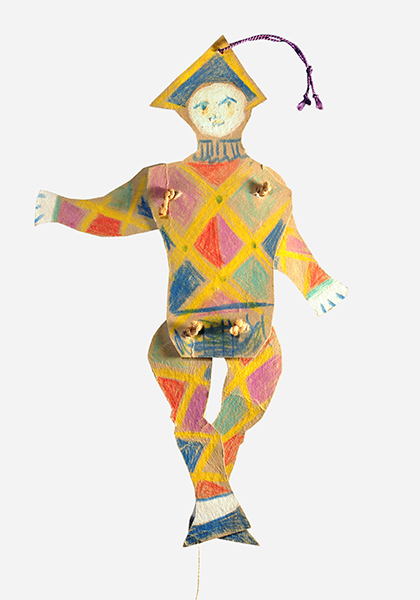"We knew it was not anything" ...
J. M.: There appears to have been deep mutual respect between the children and the father. When parents have children early in life, they pay less attention and listen to them less. Whereas an older father with more experience pays more attention and listens to them more.
It’s true, an older father doesn’t make the same demands, is less impatient and nervous— nervous though he may still have been—, and is more likely to listen to his kids, not really seeing them as equals, but with a sort of freshness
. I think he loved that, to joke around, with no hard feelings afterwards.
We were free to do whatever we wanted. You can imagine that we did just anything, because in people’s small minds Picasso did just anything. But anyway, we knew it wasn’t just anything. To begin with, we didn’t consider we were doing just anything; we were allowed to do whatever we wanted, whatever we were supposed to do.
Artists are often very focused on themselves, on their own priorities: “I, me…” “I have to do this, do that, I’m working…” It wasn’t annoying, but sometimes it did lead to funny situations. They would forget about us and we were perfectly happy to be forgotten. I was thrilled to slip off to the schoolmistress’s house, who made absolute fantastic sausage with apples, and the following day they’d realize I wasn’t home. I’d say incredible things, like that they should buy furniture for my mistress; it made them laugh. I didn’t understand what was so funny, but I’d keep up the show.
It’s true, an older father doesn’t make the same demands, is less impatient and nervous— nervous though he may still have been—, and is more likely to listen to his kids, not really seeing them as equals, but with a sort of freshness
. I think he loved that, to joke around, with no hard feelings afterwards.
We were free to do whatever we wanted. You can imagine that we did just anything, because in people’s small minds Picasso did just anything. But anyway, we knew it wasn’t just anything. To begin with, we didn’t consider we were doing just anything; we were allowed to do whatever we wanted, whatever we were supposed to do.
Artists are often very focused on themselves, on their own priorities: “I, me…” “I have to do this, do that, I’m working…” It wasn’t annoying, but sometimes it did lead to funny situations. They would forget about us and we were perfectly happy to be forgotten. I was thrilled to slip off to the schoolmistress’s house, who made absolute fantastic sausage with apples, and the following day they’d realize I wasn’t home. I’d say incredible things, like that they should buy furniture for my mistress; it made them laugh. I didn’t understand what was so funny, but I’d keep up the show.





 Summary
Summary